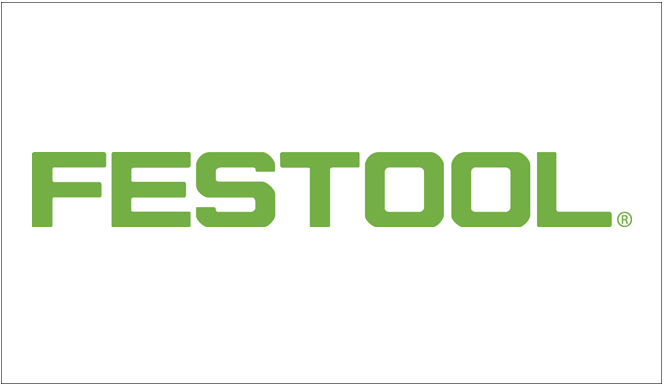
When Festool set up shop in the United States, they decided they needed a new tag line. The German company’s long established “Tools for the toughest demands” just didn’t describe the position the company hoped to stake out in the New World. So, according to Festool USA CEO and President, Christian Oltzscher, they came up with “Like nothing else” to introduce the line of unique hand tools for professional woodworkers.
Based in Germany, Festool manufactures a line of specialized hand tools, each designed to uniquely meet the needs of professional woodworkers. Founded in 1925, the company only made large woodworking machinery until the 1940s and 50s when it added handheld tools to its line. That began a shift in emphasis that culminated in the 80s when the company decided to focus exclusively on hand tools and discontinued making the large machinery. (Though several companies also lay claim to the invention, Christian noted that Festool was the first to introduce an orbital sander into Europe.) By 1998, the company was the leader in its European markets and decided it was time to find a new market.
“There are big markets in Russia and China,” Christian explained, “but they don’t have a lot of money. Since the United States is the biggest market in the world we decided to come here.”
Working through a distributor, the company began establishing itself as a source for professional woodworkers in the United States. Then two years ago, Festool took over the distributor and sent Christian to run the American operation, headquartered in California. Expansion into the U.S. market has been carefully paced, with sales channeled through a select group of dealers or agents.
“We try to avoid going to dealers who already carry 20 brands of power tools,” Christian explained. “And we look for someone who’s made a decision about which brands they will or won’t carry. Sometimes we ask our end users where they buy our tools. We spend a lot of time on training, and the total number needs to be manageable. That way, I can call 20 or 30 dealers every week and make sure they have everything they need.”
The line of products the company offers differs only slightly from the European line. Circular saws, drills, routers, planers, and jigsaws offer unique ergonomic grips, guide rails, and built-in dust control systems. Christian described their American markets as flooring, kitchen-countertop installations, solid-surface sanding, boat building and, of course, woodworking. Compared to the competition, Christian admits Festool is higher priced, but he insists that the investment is more than returned.
“Through our small regional dealers, we want to compete on service to the customer and not on price.” He explained, “Our tools are unique, and they require explanation from knowledgeable salespeople. Our agents have a strong connection to their customers; they know what their customers bought in the past and what application they have.”
“And if you look at total cost of tools, ours are designed to work faster and save labor and extend the life of consumables to save costs. For example, the balance engineered into the sander makes it more expensive, but when you sand every day for eight hours, you appreciate the low vibrations. In another example, we have a special kind of pattern for our sanding pad. The center hole helps avoid the vacuum that normally builds up in the center and clogs up the sandpaper. It increases dust extraction and the service life of the abrasives by 30 percent. And with our three year warranty, the extra price is worth it!”
All the tools are made in Germany, but adaptation for the U.S. market has not been difficult. The re-engineering required to go from 230 to 120 volts is not difficult, but getting UL [Underwriters Laboratory] approval has taken time. Christian explained that this was due to the different standards between the EU and the U.S., and though it’s not required, the company felt it was important to obtain.
“Dealing with UL can be quite challenging,” Christian recalled. “Our portable table saw uses a design called a pull saw, where the wood stays put and you push the saw blade through it. It’s typical in Europe, but it just confused UL since there is no U.S. standard against which to test it, and we decided not to introduce it.”
To get the word out, Festool does some advertising, but depends mostly on word of mouth. And word is spreading. At tradeshows, Christian describes that often when he starts a pitch, an existing customer comes by and basically takes over the pitch. As business has increased, inventories have gone up, and Festool was able to introduce an across the board price decrease last summer. The next phase, according to Christian, will be to look at new products developed especially for the U.S. market. And they’ll be listening to their commercial and individual woodworker customers to develop the next generation of unique tools.
To see more about Festool products, read independent product reviews, or locate a dealer, visit their Web page.





